
Gulhi Island: A Tranquil Paradise in the Maldives
Gulhi Island, nestled in the mesmerizing waters of the Maldives, offers a serene escape from the hustle and bustle of everyday life. This small yet charming island is known for its pristine white sandy beaches, crystal-clear turquoise waters, and vibrant coral reefs. The island is perfect for those looking to relax and unwind, with an array of activities such as snorkeling, diving, and sunbathing available to its visitors. As you step onto Gulhi, you will be greeted by the warm hospitality of the local Maldivian community. The island's small size makes it easy to explore on foot, allowing you to take in the natural beauty and unique culture at a leisurely pace. Enjoy freshly caught seafood at the local restaurants, or try traditional Maldivian dishes that will tantalize your taste buds. For the adventurous, the surrounding waters are teeming with marine life, making it a prime spot for snorkeling and diving. Swim alongside colorful fish, turtles, and even reef sharks as you explore the vibrant underwater world. Gulhi's coral reefs are some of the most beautiful and well-preserved in the Maldives, offering unforgettable experiences for both novice and experienced divers. Gulhi Island is also an excellent base for exploring nearby attractions. Take a short boat ride to visit other stunning islands, or enjoy a day trip to the bustling capital city of Malé. Whether you're seeking relaxation or adventure, Gulhi Island is a hidden gem in the Maldives that promises an unforgettable vacation experience.
Local tips in Gulhi Island
- Respect local customs and dress modestly when not on the beach.
- Bring your own snorkeling gear if you plan to explore the underwater world.
- Try the local seafood dishes, especially the freshly caught fish.
- Book your accommodation in advance, especially during peak seasons.
- Consider a day trip to the capital city, Malé, for a change of pace.
Gulhi Island: A Tranquil Paradise in the Maldives
Gulhi Island, nestled in the mesmerizing waters of the Maldives, offers a serene escape from the hustle and bustle of everyday life. This small yet charming island is known for its pristine white sandy beaches, crystal-clear turquoise waters, and vibrant coral reefs. The island is perfect for those looking to relax and unwind, with an array of activities such as snorkeling, diving, and sunbathing available to its visitors. As you step onto Gulhi, you will be greeted by the warm hospitality of the local Maldivian community. The island's small size makes it easy to explore on foot, allowing you to take in the natural beauty and unique culture at a leisurely pace. Enjoy freshly caught seafood at the local restaurants, or try traditional Maldivian dishes that will tantalize your taste buds. For the adventurous, the surrounding waters are teeming with marine life, making it a prime spot for snorkeling and diving. Swim alongside colorful fish, turtles, and even reef sharks as you explore the vibrant underwater world. Gulhi's coral reefs are some of the most beautiful and well-preserved in the Maldives, offering unforgettable experiences for both novice and experienced divers. Gulhi Island is also an excellent base for exploring nearby attractions. Take a short boat ride to visit other stunning islands, or enjoy a day trip to the bustling capital city of Malé. Whether you're seeking relaxation or adventure, Gulhi Island is a hidden gem in the Maldives that promises an unforgettable vacation experience.
When is the best time to go to Gulhi Island?
Iconic landmarks you can’t miss
Tsunami Monument
A solemn memorial in Malé dedicated to the victims of the 2004 tsunami, symbolizing hope and resilience.
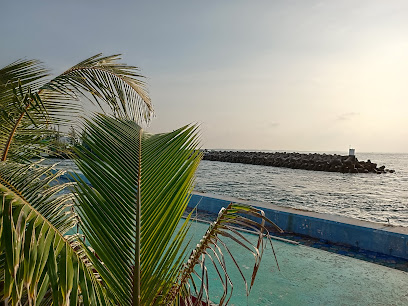
Tropic Tree Maldives
Experience the Maldives like a local at Tropic Tree Maldives, Gulhi: affordable charm, island serenity, and authentic culture.

Ayala Ocean View
Experience a relaxing Maldives getaway at Ayala Ocean View on Gulhi Island, with cozy rooms, great food, and easy beach access.
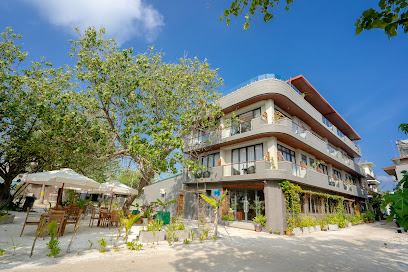
Gulhi Beach
Experience the Maldives' local charm at Gulhi Beach: pristine sands, turquoise waters, and a tranquil island escape.
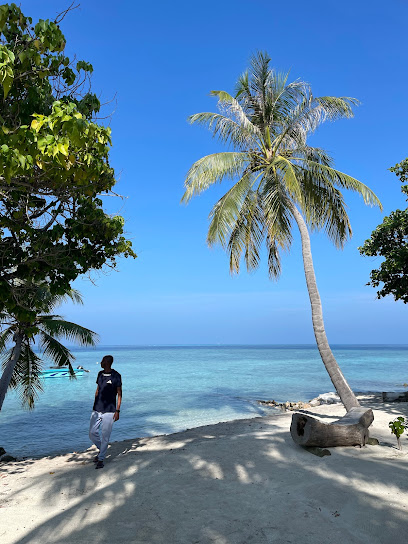
Gulhi
Discover the serene beauty and vibrant culture of Gulhi Island, a hidden paradise in the Maldives perfect for relaxation and adventure.
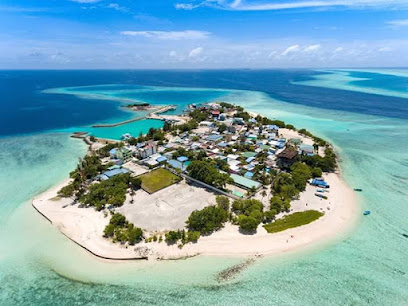
Gulhi Bikini Beach
Discover Gulhi Bikini Beach: A serene Maldivian escape with turquoise waters, white sands, and authentic local charm. Perfect for budget travelers!
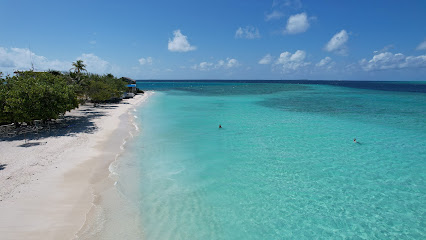
Sandy Heaven Maldives
Experience Gulhi Island's charm at Sandy Heaven Maldives: beachfront bliss, local culture, and budget-friendly adventures await!

Medhu Ziyaaraiy
Explore Medhu Ziyaaraiy in Malé, a serene shrine honoring the scholar who introduced Islam to the Maldives in 1153 AD.
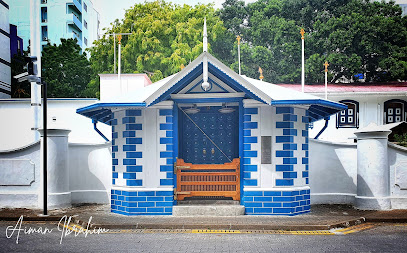
Ocean Pearl Maldives - Getaway Diving and excursions
Experience the authentic Maldives on Gulhi Island, with pristine beaches, vibrant marine life, and a welcoming local community.

Gurus Maldives
Experience the Maldives like a local at Gurus Maldives in Gulhi. Beachfront bliss, cultural charm, and unforgettable memories await!
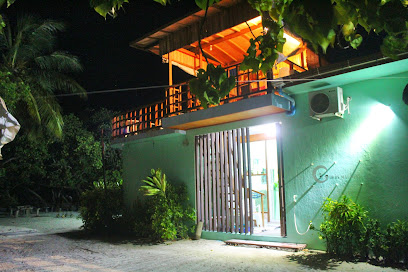
Pearlshine Retreat Maldives
Experience tranquility at Pearlshine Retreat Maldives, Gulhi Island. Pristine beaches, turquoise waters, and authentic Maldivian charm await.
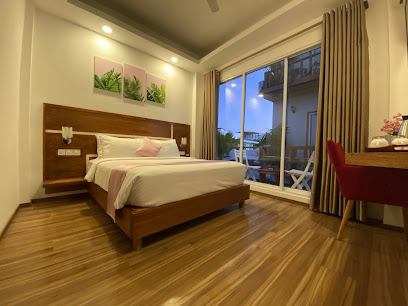
Gulhifushi - Picnic Island
Escape to Gulhifushi: A serene Maldives picnic island with pristine beaches, turquoise waters, and delightful snacks.
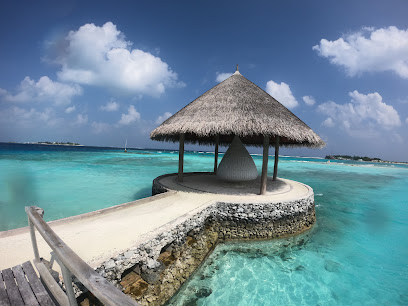
Gulhi Beach South End
Escape to the tranquil shores of Gulhi Beach South End, a hidden gem in the Maldives offering serenity and local charm.
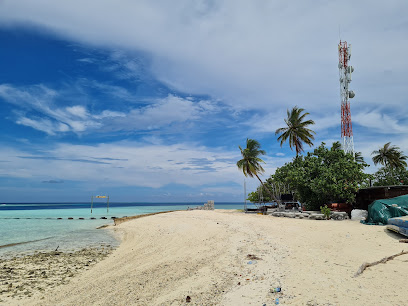
BEACH WALK VILLA
Experience the Maldives on a budget at Beach Walk Villa, Gulhi. Beachfront bliss, local charm, and unforgettable island memories await!
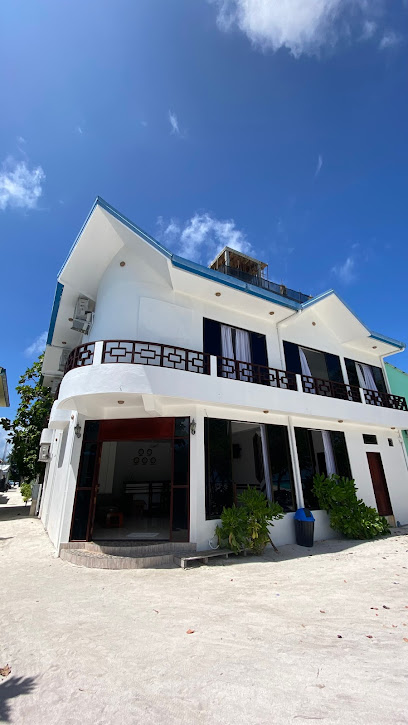
Gulhi Pier
Experience the authentic charm of Gulhi Island at its vibrant pier, offering stunning views, local fishing culture, and breathtaking sunsets.
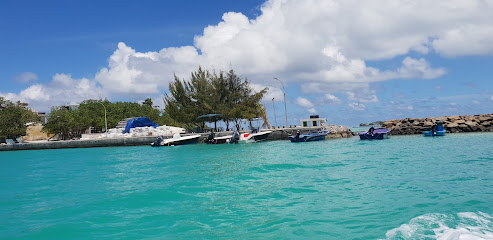
Unmissable attractions to see
Artificial Beach
Experience the tranquility and vibrant culture at Malé's Artificial Beach, a unique urban oasis in the heart of the Maldives.
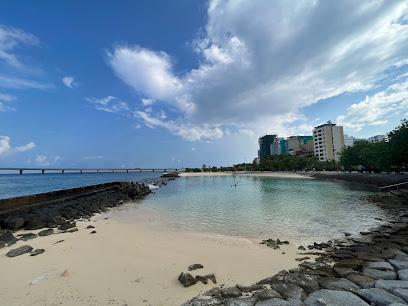
Tsunami Monument
Visit the Tsunami Monument in Malé to honor resilience and reflect on the strength of the Maldivian people amidst beautiful parkland.
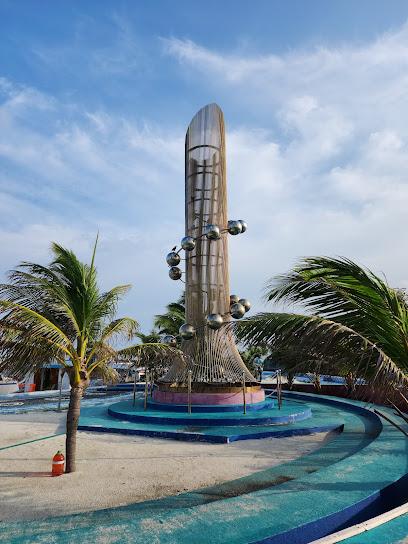
Gulhi Beach
Experience the pristine beauty of Gulhi Beach in the Maldives, where soft sands and vibrant culture await every traveler.
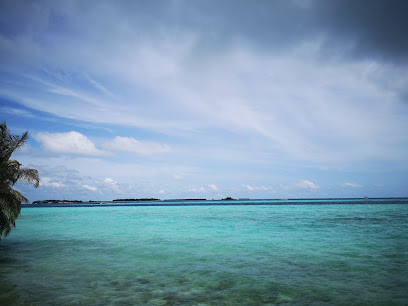
Sand Bank
Experience the stunning natural beauty of Sand Bank in Malé, a perfect escape for relaxation, adventure, and unforgettable memories in the Maldives.
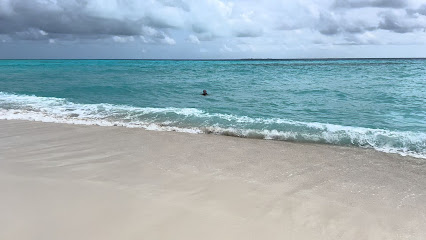
Coral garden
Explore the vibrant underwater wonders of Coral Garden in Maafushi, a snorkeling and diving paradise in the Maldives rich with marine life.
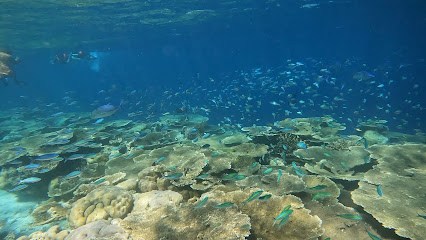
Maafushi Corner Dive Site
Experience the underwater wonders of the Maldives at Maafushi Corner Dive Site, where adventure and marine beauty await every visitor.
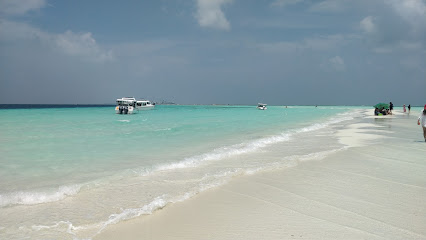
Sunset Point
Experience breathtaking sunsets and serene beauty at Sunset Point, Guraidhoo, a must-visit destination in the Maldives for every traveler.

شاه علم
Experience the natural beauty and cultural richness of Shah Alam, a must-visit tourist attraction in the Maldives offering serene landscapes and vibrant heritage.
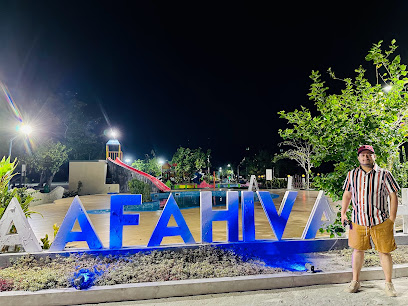
Banana Reef K.Guraidhoo
Explore the vibrant underwater world of Banana Reef in Guraidhoo, where stunning coral reefs and diverse marine life await every tourist.
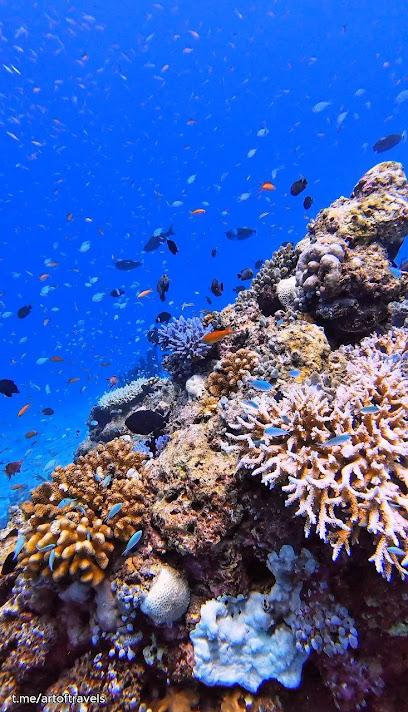
K.Guraidhoo Manta Point
Explore the underwater marvels of K.Guraidhoo Manta Point in the Maldives, where manta rays and vibrant marine life await your discovery.
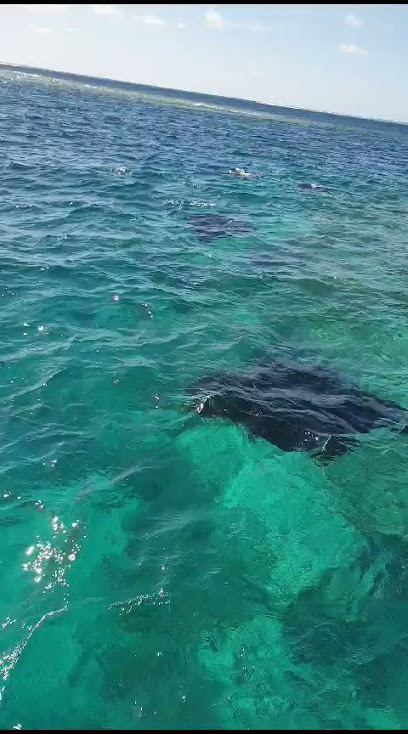
Miyaru Faru Raalhugandu
Explore the serene beauty of Miyaru Faru Raalhugandu, a stunning tourist attraction in Gulhi, Maldives, where nature and tranquility meet.

Mii ethan
Experience the serene beauty and vibrant culture of Mii Ethan, a stunning tourist attraction in Gulhi, Maldives, perfect for relaxation and exploration.

Gayye gaadiyaa
Explore Gayye Gaadiyaa in Guraidhoo - a serene tourist attraction offering stunning beaches, local culture, and unforgettable experiences in the Maldives.

Nilamehi gaa
Explore Nilamehi Gaa in Gulhi, a tranquil Maldivian attraction offering captivating views and cultural experiences amidst stunning natural beauty.

Ginimas gaa
Explore the serene beauty and rich culture of Ginimas Gaa in Gulhi, a hidden gem in the Maldives perfect for relaxation and adventure.

Essential places to dine
Mr.Octopus - Your holiday Chef
Experience exquisite seafood dining at Mr.Octopus on Kaani Beach - where delicious flavors meet breathtaking ocean views.
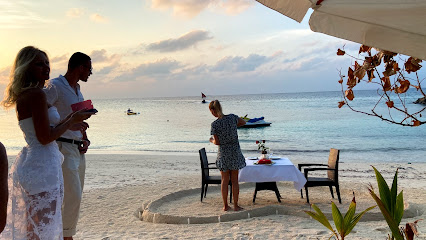
Moonlight - FOOD . DRINKS . SHISHA
Experience exquisite cuisine and vibrant shisha at Moonlight - your go-to restaurant and lounge in the Maldives.
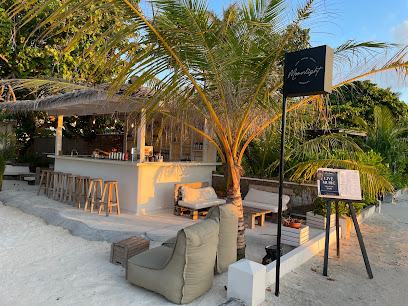
Hot Bite
Experience delightful local cuisine at Hot Bite Restaurant & Café in Maafushi - where every bite tells a story.
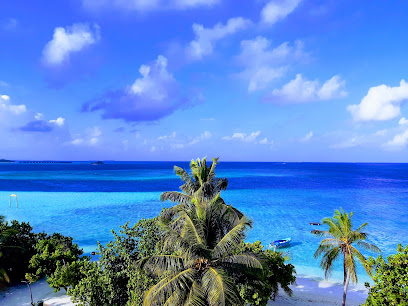
Hiyala Mariyaad Cafe'
Experience authentic Maldivian flavors at Hiyala Mariyaad Cafe', where fresh seafood meets island hospitality.
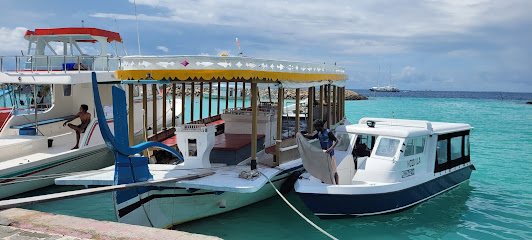
MELON RESTAURANT by Maladiwa
Experience authentic Maldivian flavors at Melon Restaurant in Maafushi – where great food meets breathtaking views.
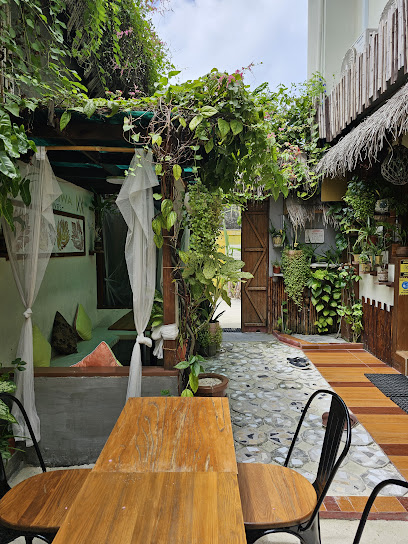
Thun’di Cafe - The Island Restaurant
Discover authentic Maldivian flavors at Thun’di Cafe in Guraidhoo – a must-visit culinary destination for every traveler.
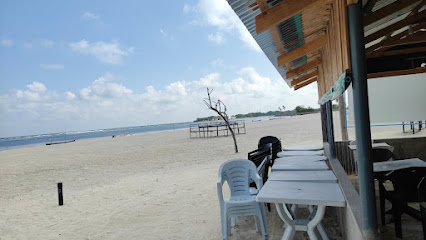
SULTAN MAHAL Restaurant
Savor authentic Maldivian cuisine at Sultan Mahal Restaurant in Maafushi - where every meal is a celebration of flavor.
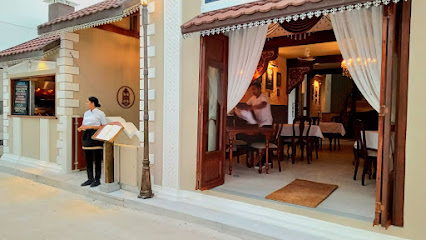
Sea Fire Salt
Experience exquisite dining at Sea Fire Salt in Anantara Dhigu - where fresh seafood meets stunning ocean views in paradise.
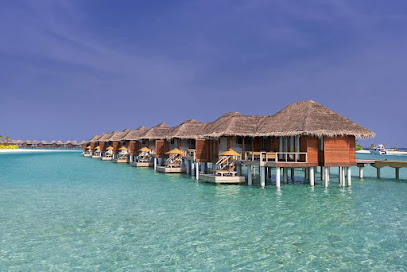
Hotel Fulhoi
Experience exquisite dining at Hotel Fulhoi - where local flavors meet international cuisine amidst stunning island views.
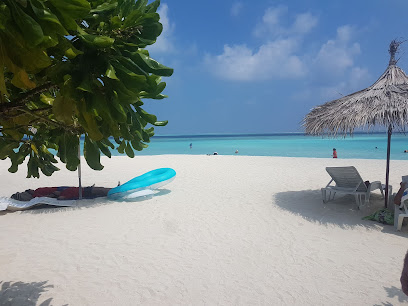
Aveli Restaurant
Discover culinary delights at Aveli Restaurant in Maafushi - where local flavors meet international cuisine in a charming setting.
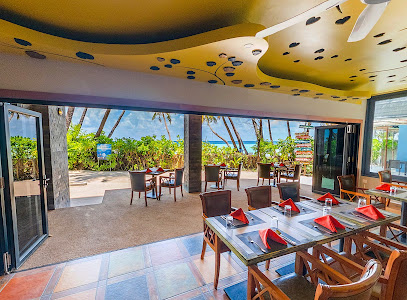
Premier Beach Hotel & Restaurant
Discover tranquility at Premier Beach Hotel & Restaurant in Gulhi - where exquisite dining meets stunning ocean views.

Fushi Cafe
Discover the exquisite flavors and stunning ambiance at Fushi Cafe in Gulhi - a must-visit restaurant for food lovers.
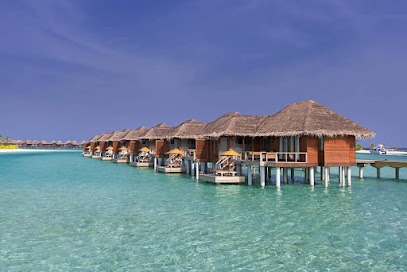
SaLt HaRbOur ️
Experience authentic Maldivian cuisine at SaLt HaRbOur in Gulhi - where every dish tells a story.
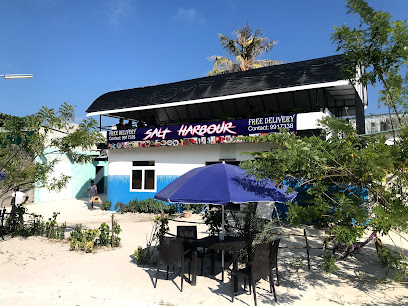
Sunrise Beach Restaurant
Experience Maldivian flavors at Sunrise Beach Restaurant in Maafushi – where stunning views meet delectable cuisine.
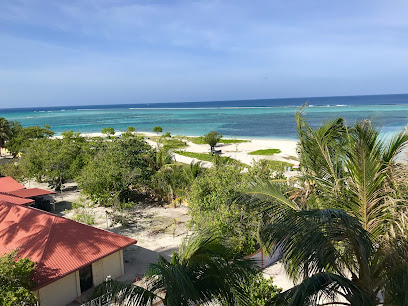
Coco Grill Restaurant (Arena Beach Restaurant)
Experience authentic Maldivian cuisine at Coco Grill Restaurant in Maafushi - where flavor meets paradise.
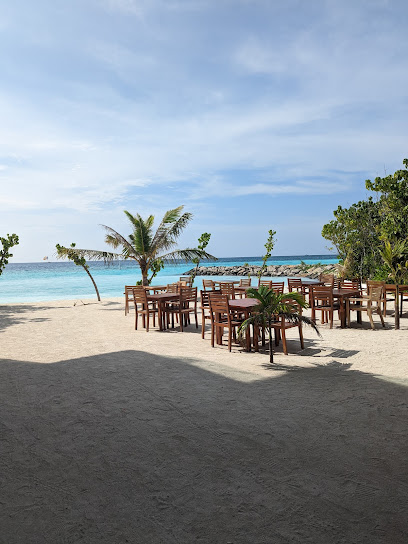
Markets, malls and hidden boutiques
Lily Spencer
Explore unique local crafts and souvenirs at Lily Spencer, a charming shop in Maafushi that embodies the spirit of the Maldives.
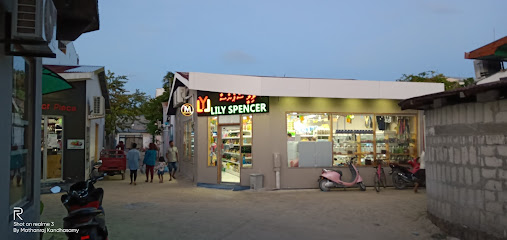
Island Gift
Discover the essence of the Maldives at Island Gift, your go-to souvenir store in Maafushi for unique crafts and local treasures.
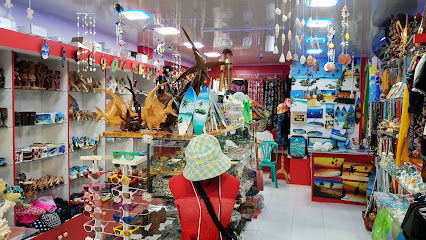
Arena Souvenirs - Tourist Gift Shop
Explore the vibrant world of local crafts and unforgettable souvenirs at Arena Souvenirs in Maafushi, Maldives.
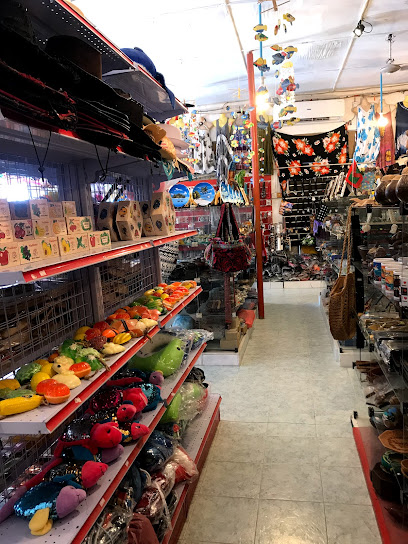
Eloda Souvenir Shop
Explore Eloda Souvenir Shop in Aaru for authentic Maldives crafts and unique keepsakes to commemorate your island adventure.
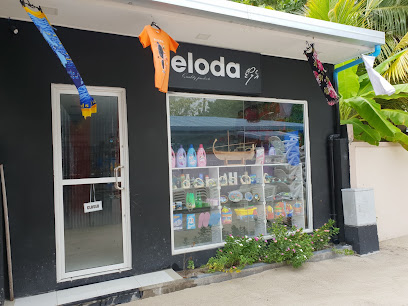
Hello Maafushi
Explore Hello Maafushi, your go-to destination for authentic Maldivian souvenirs and friendly service in the heart of Maafushi.
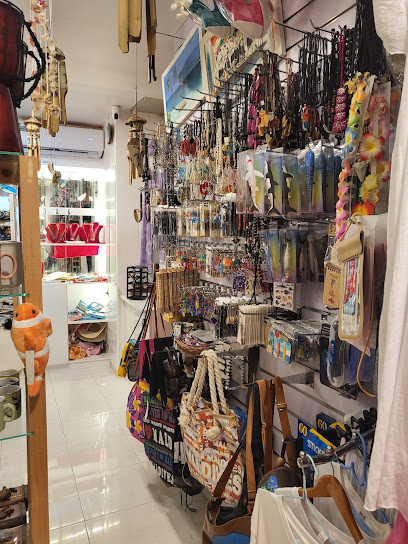
Cool beach
Explore Cool Beach in Maafushi, where stunning sands meet thrilling water adventures and vibrant local culture.
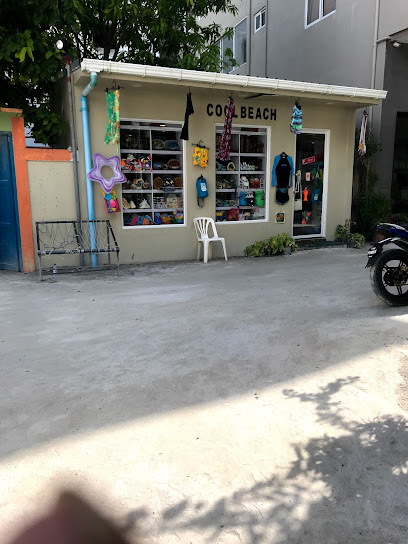
Odex Souvenirs Shop
Discover authentic Maldivian souvenirs and local crafts at Odex Souvenirs Shop in Maafushi, an essential stop for every traveler.
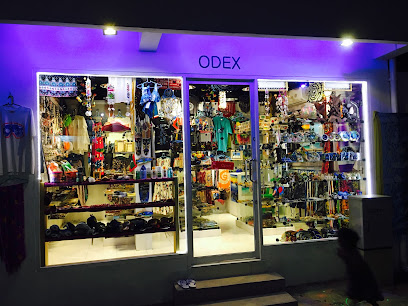
Pesce Bianco Souvenir Maafushi
Explore authentic Maldivian souvenirs at Pesce Bianco Souvenir Maafushi – perfect mementos for your island adventure.
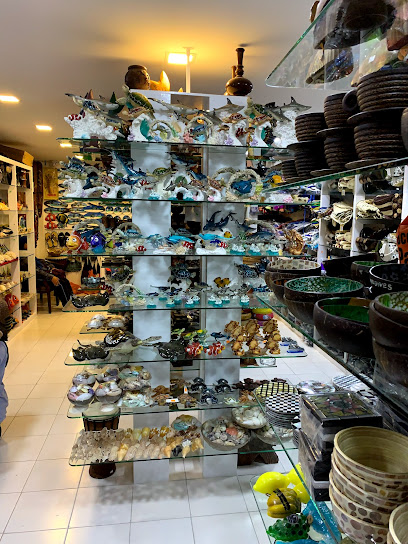
Anantara Dhigu Boutique 2
Discover the charm of the Maldives at Anantara Dhigu Boutique, where local crafts and souvenirs await every traveler.
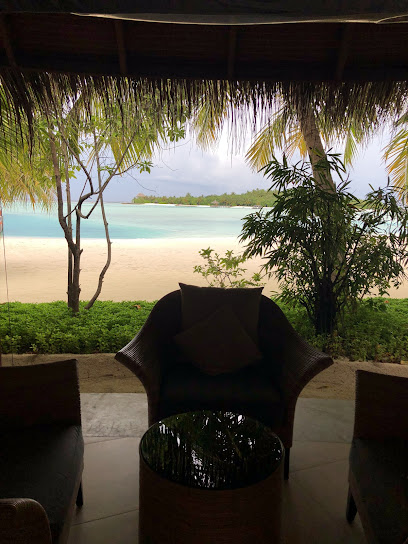
STO Pharmacy
Explore the charm of Gulhi while ensuring your health at STO Pharmacy, the trusted pharmacy for tourists and locals in the Maldives.
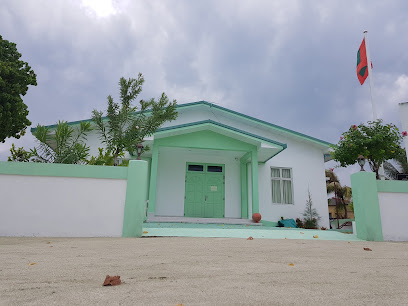
Anantara Dhigu Boutique 1
Explore Anantara Dhigu Boutique: A treasure trove of unique gifts and local crafts in the heart of Gulhi, Maldives, perfect for souvenirs and memories.
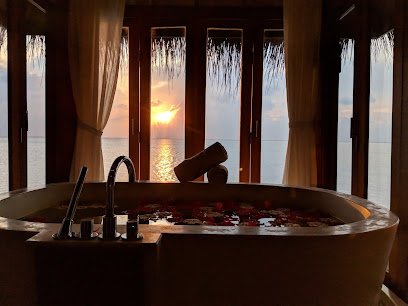
Aachaa Shop
Discover the charm of local shopping at Aachaa Shop in Maafushi, where authentic Maldivian crafts and souvenirs await every traveler.
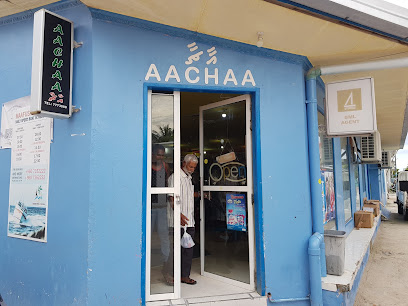
LandPRO
Experience the local charm of Maafushi at LandPRO Store, your go-to destination for refreshing drinks and snacks.
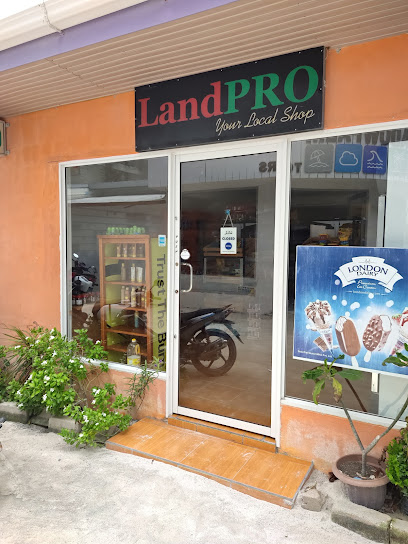
Good Wear
Discover unique fashion at Good Wear, a must-visit clothing store in Guraidhoo, Maldives, blending local style with international trends.
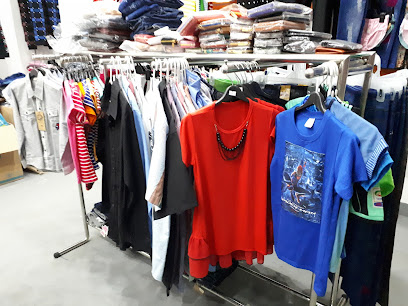
Maafushi E puff
Explore Maafushi E Puff, the ultimate destination for tobacco enthusiasts in the heart of the Maldives, offering quality products and local charm.
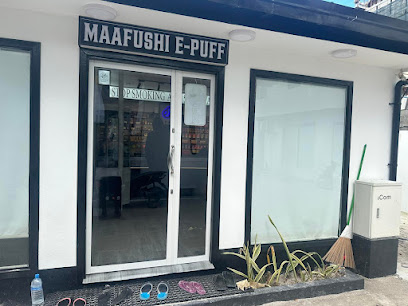
Essential bars & hidden hideouts
Moonlight - FOOD . DRINKS . SHISHA
Discover the vibrant culinary experience at Moonlight, where delicious food meets a lively lounge atmosphere in the Maldives.
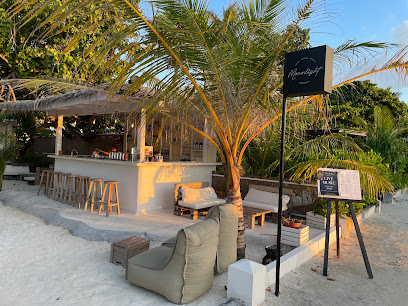
Anchorage Bar
Discover Anchorage Bar: a tropical oasis at Sheraton Maldives, where stunning ocean views meet exquisite cocktails and vibrant entertainment.
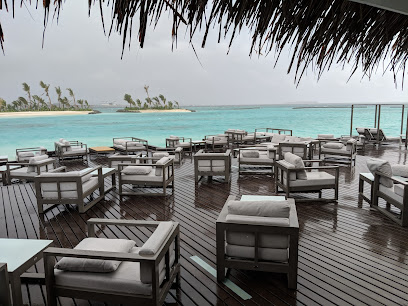
Peacock Alley
Discover the ultimate lounge experience at Peacock Alley, where luxury meets relaxation in the breathtaking Maldives.
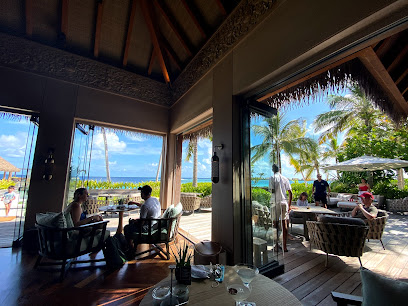
Hotel Fulhoi
Discover the exquisite flavors of Maldivian cuisine at Hotel Fulhoi in Gulhi, where every meal is a celebration of local ingredients and warm hospitality.
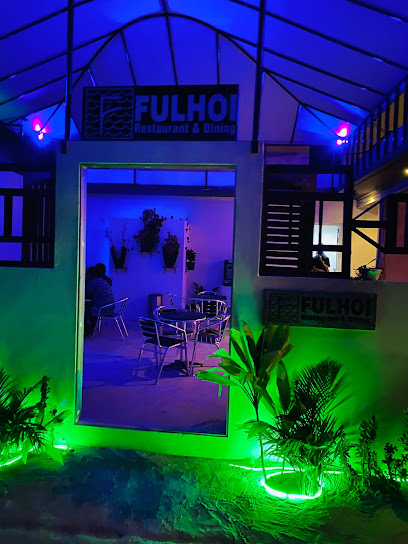
Tropic Tree Maldives
Experience the beauty of the Maldives at Tropic Tree Maldives, a tranquil oasis offering comfortable accommodations and breathtaking views in Gulhi.
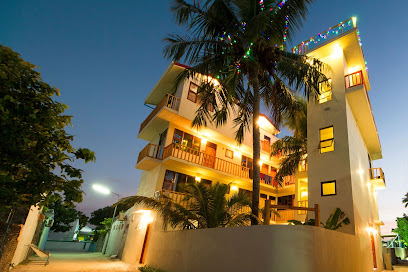
Premier Beach Hotel & Restaurant
Experience the ultimate blend of comfort and culinary excellence at Premier Beach Hotel & Restaurant in the captivating Gulhi, Maldives.

SaLt HaRbOur ️
Discover the taste of the Maldives at SaLt HaRbOur ️, a charming restaurant in Gulhi known for its fresh seafood and inviting atmosphere.
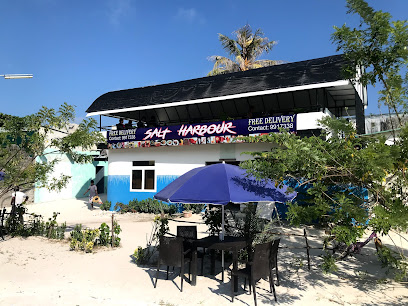
Ocean Pearl Maldives
Experience the serene beauty of the Maldives at Ocean Pearl, a cozy guest house in Gulhi with stunning beaches and vibrant marine life.
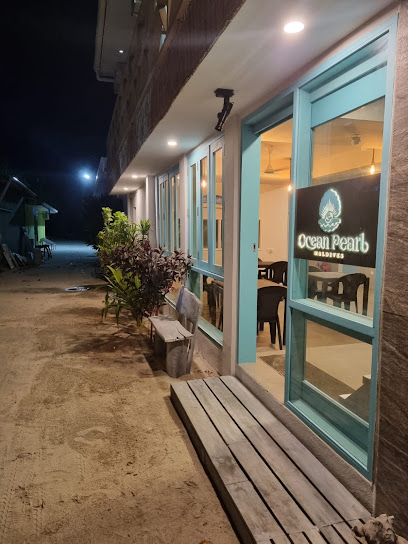
Chill Bar
Experience the serene ambiance and exquisite cocktails at Chill Bar, a must-visit oasis in beautiful Velassaru.
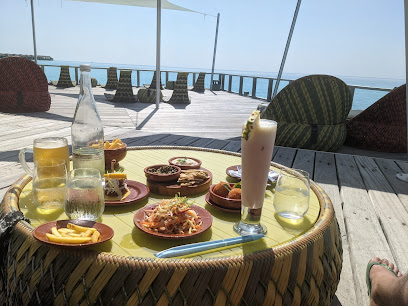
Aqua Bar
Experience the tropical allure of Aqua Bar in the Maldives, where refreshing cocktails meet stunning ocean views in a vibrant atmosphere.
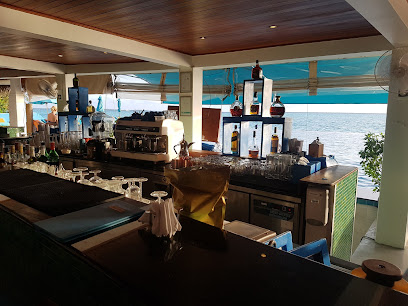
Dhoni Bar
Experience Guraidhoo's premier cocktail bar, Dhoni Bar, where vibrant drinks and breathtaking views create unforgettable moments.
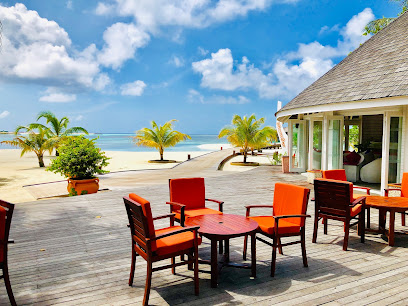
Benha Restaurant
Discover the culinary delights of Benha Restaurant in Gulhi, Maldives, where fresh ingredients meet traditional flavors in a stunning seaside setting.
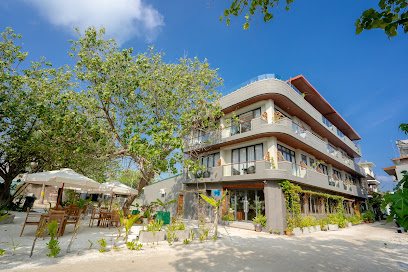
Aura Pool Bar & Cocktail Lab
Discover the serene elegance of Aura Pool Bar & Cocktail Lab, where exquisite cocktails meet stunning views in the heart of the Maldives.
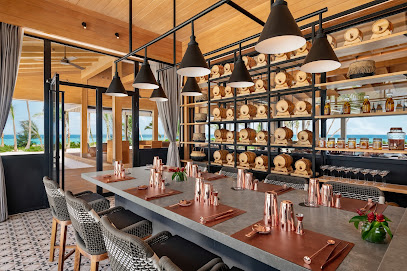
La Vista café & bistro
Discover the vibrant flavors of the Maldives at La Vista Café & Bistro in Gulhi, where local charm meets culinary excellence.
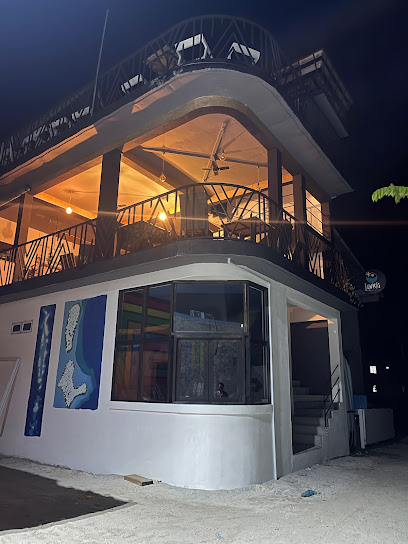
Local Phrases about Gulhi Island
-
- Helloމިއަދުވާ
[miadhuva] - Goodbyeއަލުއްޗާ
[aluhuva] - Yesކުރެ
[kure] - Noނުވާ
[nuva] - Please/You're welcomeއެއްވާން
[ehvaa] - Thank youޝުކުރުނު
[shukuriyya] - Excuse me/Sorryއެއްވާން
[ehvaa] - How are you?ކުރުމެވެ?
[kure meeva?] - Fine. And you?މާލުވާ. ކުރުމެވެ?
[maaluva. kure meeva?] - Do you speak English?އެއްވާން ނުވާނުވާނުދާ?
[ehvaa nuvaaneve?] - I don't understandނުވައްމަދުނު
[nuameadhuva]
- Helloމިއަދުވާ
-
- I'd like to see the menu, pleaseމިއަރުކެވެވެގާ އެއްވާން
[miarukevaa ehvaa] - I don't eat meatނުވައްނު ވިދީނުނު
[nuameinu vadhinu] - Cheers!ވެތަނުދާ!
[vedanuve!] - I would like to pay, pleaseމިއަރުކެވެވެގާ އެއްވާން
[miarukevaa ehvaa]
- I'd like to see the menu, pleaseމިއަރުކެވެވެގާ އެއްވާން
-
- Help!ނުވަލުމަދު!
[nulmadhu!] - Go away!ކުރީއާނު!
[kuriaanu!] - Call the Police!ޕޮލިސް ނަޝީޅުން!
[polis navihanu!] - Call a doctor!ދަކަނަ ނަޝީޅުން!
[dakanavihanu!] - I'm lostމިއަރުކެވެގާ
[miarukevaa] - I'm illމިއަރުކެވެގާ
[miarukevaa]
- Help!ނުވަލުމަދު!
-
- I'd like to buy...މިއަރުކެވެވެގާ...
[miarukevaa...] - I'm just lookingނުވައްވަމުނު
[nuamevamnu] - How much is it?ކުރުދީ ވަނަ އިތުރުލުމަދެ?
[kure vadha imeyrumadhive?] - That's too expensiveމާއް ވަނަ ވާހަކޭ
[maa vadha vahaka] - Can you lower the price?ކުރެގައުވާ އިތުރުލުމަދެ?
[kuragevaa imeyrumadhive?]
- I'd like to buy...މިއަރުކެވެވެގާ...
-
- What time is it?ކުރުވާ ދީފާ ވިޔަނަ?
[kure faiy vadha?] - It's one o'clockއިތުޅެވެގާ
[imefavevaa] - Half past (10)ހަލްފަސް (މިއަދު އެއް)
[hahfah (miadhu ehvaa)] - Morningމިނަގަރު
[mingaaruh] - Afternoonއޫމަގަރު
[ehmaagaru] - Eveningއެމަގަރު
[emagaru] - Yesterdayފެފުނުލު
[feynulhu] - Todayމިއަދު
[miadhu] - Tomorrowއީތުވީ
[iyyovi] - 1އާ
[aai] - 2ދި
[dhi] - 3ތިއ
[thi] - 4ފުި
[fi] - 5ބަސި
[bas] - 6ޖެސި
[jehs] - 7ދެޖި
[dehs] - 8ސެޖި
[sehs] - 9ދަސްކަން
[dahkane] - 10މިއަދު
[miadhu]
- What time is it?ކުރުވާ ދީފާ ވިޔަނަ?
-
- Where's a/the...?ކުރުވާ ...?
[kure ...?] - What's the address?ކުރުވާ އޫތަނަރު?
[kure evandhu?] - Can you show me (on the map)?ކުރާވާ މަޕުކޮހެވެގާ?
[kurave maphukohvaa] - When's the next (bus)?ކުރުވާ އުތަނަލުމަދެ?
[kure undhalmadhive?] - A ticket (to ....)ދިކެވެގާ (މިއަދު އެއް)
[dhiarukevaa (miadhu ehvaa)]
- Where's a/the...?ކުރުވާ ...?
History of Gulhi Island
-
Gulhi Island, like many islands in the Maldives, has a history that dates back to ancient times. Evidence suggests that the island was inhabited by early settlers who were skilled in navigation and fishing. The island's strategic location along ancient maritime routes made it a crucial stopover for traders and explorers navigating the Indian Ocean.
-
Before the advent of Islam, the Maldives, including Gulhi Island, was heavily influenced by Buddhism. Archaeological remains, such as stupas and Buddhist artifacts, have been found in various parts of the Maldives. These remnants point to a time when Buddhism played a significant role in the spiritual and cultural life of the islanders.
-
The Maldives officially converted to Islam in 1153 AD under the reign of King Dhovemi. The transformation had a profound impact on Gulhi Island, as it did on the entire archipelago. Mosques were built, and Islamic traditions and cultural practices were integrated into daily life. The island's community embraced the new religion, which continues to be a cornerstone of Maldivian identity to this day.
-
During the Age of Exploration, European powers like the Portuguese and the Dutch sought control over the Indian Ocean trade routes. Although Gulhi Island itself did not become a battleground, the broader region felt the impact of these colonial ambitions. The Portuguese briefly occupied parts of the Maldives in the 16th century, leaving behind a legacy of conflict and resistance.
-
In the late 19th century, the Maldives became a British protectorate. While the British did not exert direct control over Gulhi Island, the period brought changes in administration and trade. The islanders benefited from improved connectivity and access to broader markets, albeit under the watchful eye of British colonial authorities.
-
The latter half of the 20th century saw significant changes on Gulhi Island as the Maldives embraced modernization and tourism. The island developed infrastructure to accommodate visitors, including guesthouses and recreational facilities. Tourism has since become a vital part of Gulhi's economy, transforming it into a popular destination for travelers seeking an authentic island experience.
-
Despite the waves of change, Gulhi Island has managed to preserve its rich cultural heritage. Traditional Maldivian music, dance, and crafts are still practiced by the islanders. Visitors can experience 'Bodu Beru' performances, a traditional drumming and dance form, and witness the craftsmanship of local artisans who create intricate 'Lacquer' works and 'Thundu Kunaa' mats.
Gulhi Island Essentials
-
Gulhi Island is situated in the Kaafu Atoll of the Maldives. The closest international airport is Velana International Airport in Malé. From Malé, you can take a speedboat or a local ferry to Gulhi Island. Speedboats are faster, taking around 20-30 minutes, while ferries take approximately 1.5 hours. Speedboats are available throughout the day, but for ferries, it's advisable to check the timetable in advance.
-
Gulhi Island is small and most places can be reached on foot. Walking is the primary mode of transportation for both locals and tourists. There are no cars or bicycles available for rent. For excursions to nearby islands or snorkeling spots, you can hire boats from local providers.
-
The official currency in the Maldives is the Maldivian Rufiyaa (MVR). U.S. dollars are widely accepted in tourist areas, including Gulhi Island. Credit cards are accepted at most guesthouses and restaurants, but it is advisable to carry some cash for smaller purchases and tips. ATMs are not available on Gulhi Island, so ensure you have enough cash before you arrive.
-
Gulhi Island is generally safe for tourists. There are no high-crime areas targeting tourists, but it is always wise to take standard precautions. Avoid leaving your belongings unattended on the beach and be cautious of your surroundings during late hours. Respect local customs to avoid any cultural misunderstandings.
-
In case of an emergency, contact the local police or medical services. The emergency number in the Maldives is 119. Gulhi Island has a local health center for minor medical issues, but serious cases may require transportation to a hospital in Malé. It is advisable to have travel insurance that covers medical emergencies.
-
Fashion: Do dress modestly, especially in public areas. Wear swimwear only at designated beaches and resorts. Religion: Do respect local Islamic customs; avoid public displays of affection and dress conservatively. Public Transport: Do use speedboats and ferries respectfully; avoid loud behavior. Greetings: Do greet locals with a smile and a nod. A handshake is acceptable in more formal settings. Eating & Drinking: Do try local Maldivian dishes. Don’t drink alcohol in public areas as it is prohibited outside of resorts.
-
To experience Gulhi Island like a local, visit the local cafes (known as 'teashops') and try traditional snacks like 'hedhikaa'. Engage with the locals, who are often friendly and willing to share insights about the island's culture and history. Participate in local fishing trips and enjoy the serene beaches during early morning or late afternoon for quieter experiences.
Trending Landmarks in Gulhi Island
-
Tsunami Monument
-
Tropic Tree Maldives
-
Ayala Ocean View
-
Gulhi Beach
-
Gulhi
-
Gulhi Bikini Beach
-
Sandy Heaven Maldives
-
Medhu Ziyaaraiy
-
Ocean Pearl Maldives - Getaway Diving and excursions
-
Gurus Maldives
-
Pearlshine Retreat Maldives
-
Gulhifushi - Picnic Island
-
Gulhi Beach South End
-
BEACH WALK VILLA
-
Gulhi Pier
Nearby Cities to Gulhi Island
-
Things To Do in Malé
-
Things To Do in Hulhumalé
-
Things To Do in Fulidhoo
-
Things To Do in Huraa
-
Things To Do in Thulusdhoo
-
Things To Do in Ukulhas
-
Things To Do in Thoddoo
-
Things To Do in Dhigurah
-
Things To Do in Maafushi
-
Things To Do in Trivandrum
-
Things To Do in Kanyakumari
-
Things To Do in Kochi
-
Things To Do in Bentota
-
Things To Do in Hikkaduwa
-
Things To Do in Colombo





